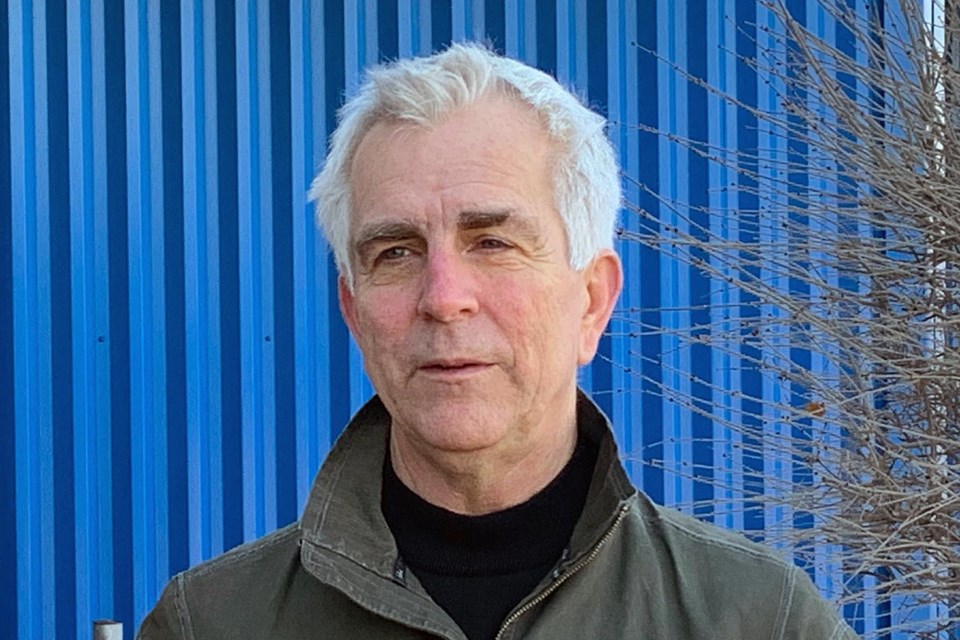THUNDER BAY — The member of parliament for Thunder Bay – Rainy River says some people in the city are ignoring COVID-19 isolation requirements, and it's time that the province took stronger action to slow the spread of the disease.
In a prepared statement, Marcus Powlowski said "I have learned of several cases in Thunder Bay of individuals, who were either COVID-19 positive or at a very high risk of being positive, ignoring instructions to self-isolate."
The MP said these people are "continuing to go into public places, use public transportation, and take part in other activities in the community."
He said if individuals refuse to self-isolate, the government should use its powers under the Ontario Health Protection and Promotion Act.
Section 22 of the act, Powlowski said, allows for a person to be fined for ignoring an order, while Section 35 permits a judge to order the physical enforcement of a self-isolation order if a person is diagnosed with a virulent disease.
He said "it seems no provincial health officer is currently enforcing" Section 35, and that he's heard various explanations for that.
"It's too legally complex...it's too slow...and, more recently, I've heard that under the act they've made COVID-19 an infectious disease, so they could use Section 22, however they have not declared it a virulent disease. The minister [of health] can do this. Why they haven't, I can't really understand," Powlowski said in an interview Monday.
He said venereal diseases are on the list of virulent diseases.
"If you sit on the bus beside someone with gonorrhea or syphilis, you're not going to get it, but if you sit next to someone with COVID, especially if they're not wearing a mask, you could end up with COVID."
Powlowski said he's heard from several different "pretty reliable" sources about individuals in the Thunder Bay area who've continued to mix with others after getting a diagnosis of COVID-19.
In one instance, a person who had been partying and sleeping in the same room as two people who had COVID refused to self-isolate.
"After repeated calls to the public health and police" by his supervisor, "it seemed that their conclusion was that they couldn't do anything about it," he said.
Other cases have been brought to Powlowski's attention by employees of the Thunder Bay Regional Health Sciences Centre.
"There were people at the hospital who were COVID positive who wanted to leave, and as far as the emergency room staff were concerned, there was no power to prevent them from walking out and getting on the bus," he said.
Some of his doctor friends, Powlowski said, say their elderly patients are "terrified" to ride the bus after seeing passengers, without masks, coughing.
He said Section 35 is an option of last resort, but is meant precisely for this kind of situation, where "you want to protect the community from people who are at high risk of spreading a disease to others...This is in the community's best interest."
Powlowski emphasized that he feels the Thunder Bay District Health Unit is doing "a great job" managing the COVID situation under a lot of pressure.
"I don't want to seem critical of them. I think this is a provincial decision not to do this. As someone who has written public health laws, I can't comprehend why they're not using this law."
TBNewswatch requested information for this story from the Ministry of Health and Long-Term Care.
A ministry spokesperson issued this statement:
Section 35 may be used by a medical officer of health to enforce a failure to comply with a communicable disease that is a virulent disease. COVID-19 is not a virulent disease. Section 35 applications to the Ontario Court of Justice can only be made by - 1. A medical officer of health 2. In respect of a virulent disease or an agent of a communicable disease (which COVID-19 is not)
"It is a complicated issue. Section 35 was designed primarily to deal with tuberculosis...It doesn't lend itself very nicely for the COVID situation, because COVID is such an acute and short-term illness," DeMille said.
She conceded that "some people just don't want to isolate" but said the health unit has other options to promote compliance.
"Some of them are very effective, and we have used them. It depends on the individuals, and the challenges they may have, how easily they can comply with the isolation requirement."
NOTE: This story was updated on Tuesday morning to include additional information supplied by the Ministry of Health and Long-Term Care.
